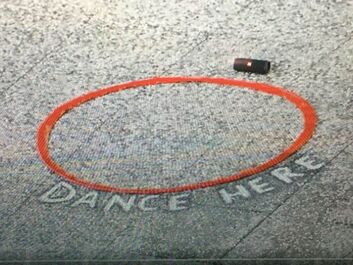 I have been trying to find a way to explain one of the core concepts of An Eos Life for some time -- then I found this. If you click on the photo that says dance here, you will be taken to a filmmaker street art video. Draw a circle -- step into it -- dance! That is all we are really saying in An Eos Life. All over the world, under different political and social systems - this is how societies change. This applied in my old job as well. We called them magic marker countries - as the number of countries almost doubled in my lifetime. One day there was no country there and the next day someone drew a circle on a map -- creating a new country. It happens all the time. I studied to be a neutral advisor to those developing states or magic marker countries. I met some of the people that were observers in the first South African election. All they did was stand there and watch what was going on. That sounded a lot better than photojournalism -- where people were still shooting at each other. So, my career evolved and I started going to places building themselves -- instead of ones blowing themselves up. And a pattern developed. The gridlock of politics got in the way of progress. Left blamed Right. Conservative blamed Liberal. We all know the story. There were just too many rules getting in the way of business developing. So, this idea of a special economic zone was born. What is that? Well, no more complicated than the circle above -- and really just a country within a country. You take an area on the map. You make up a reality where inside that circle none of the old rules of life or politics apply. And it has been my job to live inside of those since I was in my 20's. I do not believe I have an overly simple way of looking at our modern world. I believe others have an overly complicated one. M
0 Comments
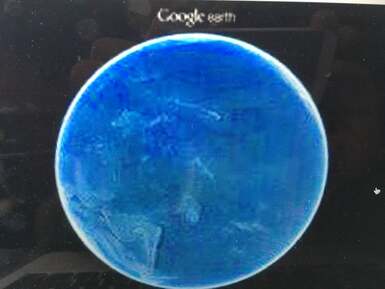 This photo is a Google earth image -- centered on the Pacific Ocean. It is about 12,000 miles across the middle there. Eight of the most remote places on Earth are out there -- islands -- places where we might stop for water and fresh food. A typical transit time in a boat like Eos -- which moves about five miles an hour -- would be about 8 months from Mexico / Panama on the right -- to Fiji or New Zealand over on the lower left. The trick is to leave around March and 'wander' your way West -- so you can end up in Fiji or some other safe haven for typhoon season. 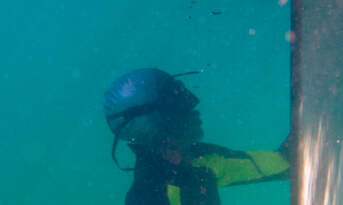 So, when researching what we wanted to do and how we wanted to do it -- we looked to the habits, customs and practices of those who actually stayed out there for decades. How did they do it? What do they advise or recommend -- and why? Our original goal included a three-year stay in French Polynesia -- the boat remaining in the water for that entire time. Then another two years or so as we crossed the rest of the Pacific and headed back to South East Asia -- my home since the late 1990's. We read about people who planned such multi-year excursions and that sounded like fun. One of the lessons we learned and have tried to apply ever since doing that research is from Jacques Cousteau -- to stay out as long as you can -- which typically means -- how much does it cost? He lamented that in the later years of his career -- fundraising for expeditions took up more of his life that he liked So, finding the least expensive way to go out -- and stay out -- was a primary goal. He was also noted for making a distinction between adventurers and explorers -- which we have folded into our self-created job titles -- explorers in residence. An adventurer, Cousteau proposed, climbed a mountain or whatever for publicity, as a stunt or other attention grabbing reasons. Where an explorer carried with them the idea of going out -- and back -- and also sharing what was found. That is the cost of getting to see. You have to share what was found. Sounded perfect. Nature speaking for herself... My job is to observe. Yay! This is where the real fun of expedition preparation began. You look at that map -- and swallow really hard and maybe say "oh shit.." -- and then start to break life down into pieces. Finding out how much food, water and supplies we really needed. How to store and put it all away. How to be 100% autonomous for months at a time -- underway -- often weeks or longer away from anything or anyone. During the second half of the trip the islands will only be about one week apart -- so much easier than the first third of the trip that could be a month or longer. This is the part my wife joked was like living in a space ship. You have to disconnect from the land and open this new way of living called cruising or voyaging or whatever label you like -- disconnecting from land life. So, we discovered that the easiest way to prepare ourselves for this was -- to stop doing everything else. You have to. You can not pay attention to or appreciate what is going on around you -- out there -- and worry about your mortgage payment or other land concerns. Land and all her complications and concerns get put on hold when you leave. We have also discovered that people believe us to be living in a Corona beer commercial as our life...um no. This is Michael cleaning Eos. Holding my breath, by hand. In certain places, this might be as often as every 20 days or so. With zero equipment except a sharpened putty knife and a mask, I can do Eos in 3-4 hours -- holding my breath. That is because Eos is 32 feet long and takes one gallon to cover the 200 sq ft area underwater two times. In comparison, a 36 foot sister to Eos -- looking identical just four feet longer -- has a surface area underwater three (3) times larger. 36 ft boat 600 sq ft vs 32 ft boat 200 sq ft. That three times bigger area to clean in exchange for four extra feet. No thanks. By the way, that 36 footer costs the same as four (4) Eos. Extreme remote expedition planning makes you look at everything in life differently. What do I want to spend my time doing? How much equipment do I want / need to rely on based on how big of a boat we have? Can I fix all that stuff? And this was supposed to be fun to -- right? So, when speaking of expedition prep and an experiment we have been conducting on ourselves -- this is what we mean. There is only one way to sail away. Just leave. Your adventure does not begin at the airport you depart from -- it begins when you land in that new place and smell those new smells. Albert Einstein is noted for saying -- do not tie your life to people or things, tie your life to a goal. Our goal is to keep going and to find as many ways to share the hope we keep finding as we can. M 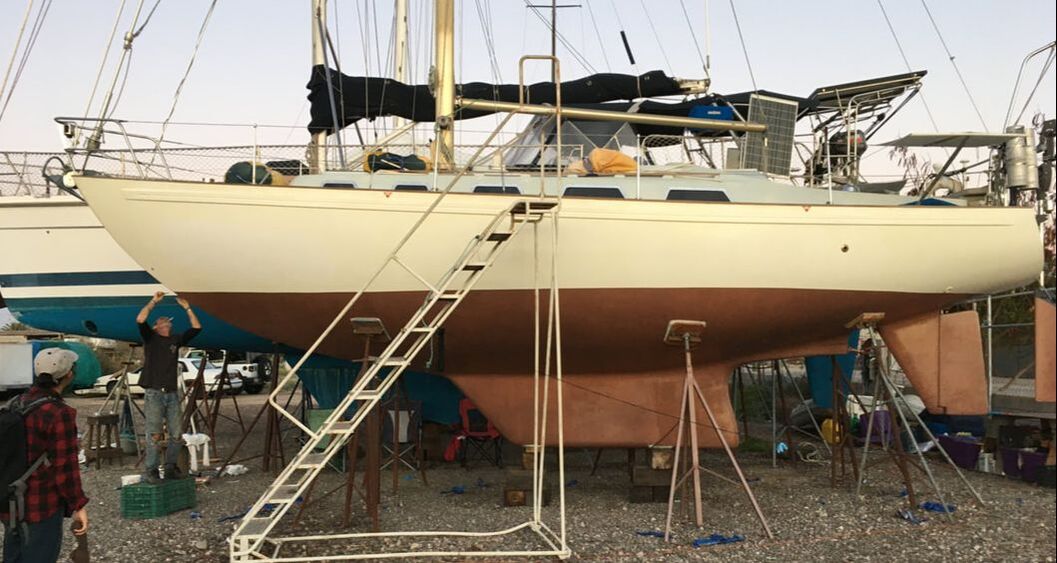 Our story is not about a boat - but there is a boat in this story. We have been living on Eos for so long now, a bit over 68 months, that she feels like the backdrop scenery of our story. An expedition tool. A home. And the best writing studio ever! And being trained as academics and scientists -- we were told to believe our opinions were irrelevant. If you can not prove it, do not talk about it. So, we did not believe anyone would be interested in us and what we thought and felt as we converted from one way of living to another -- on purpose. We came out here to tell the larger story of all of us and how we believe that humanity will be just fine. The world we live in may have different boundaries, borders, currencies and temporary power struggles. But I have seen people figure out new ways to live too many times to believe we are all going to curl up into a ball and die. That is silly. It may be different, but we will adapt to it and go on. I promise. Our way of adapting was to choose an 'expedition' boat. What does that mean? Well, there are boats to race around the world really fast. And there are ones designed to take 50 people on a tourist snorkel trip. And everything in between. In all those choices, there are expedition vessels. Things designed to go on long trips and back. Things built at a time when people were not worried about you suing them. Rather they wanted to be part of your sailing around the world and they made a damn good boat for you to do it in. Cheers to the builders of EOS and her sisters. We thank you. Above you will see Eos at Porto Penasco getting the finishing touches to her copper coat bottom. She is 32 feeet long ~ 10 feet wide and weighing in at about 15,000 lbs with an expedition load of food and water on board. Eos was designed to sail non-stop around the world -- and is therefore designed to carry a great amount of weight in a small platform. At sea, she moves about 115 miles per day under sail. We choose the copper coat hard paint option because it allows us to leave her in the water for many years. Essentially, we bought 36 pounds of talcum powder fine ground copper and 'painted' it on Eos like water color paint. Layer upon layer builds up until your boat is entirely covered in copper -- like a statue. And if you clean it correctly you may get up to 15 years without having to take your boat out of the water. Long term thinking. So, when choosing a floating home, we wanted to be able to go out on location -- for documentary filmmaking purposes -- and stay somewhere for months at a time. Whales do not wear watches. They just show up when they show up. So, part of documentary filmmaking is going out in the ocean and hoping a pregnant whale swims by. In the meantime, you need food and water and comfortable living arrangements for the crew. Thus, we decided to use that long range capability by staying longer in extreme remote locations -- and essentially just hanging around until the animals swim by. And because the boat is going to be 'on location' for years at a time, it does not make sense to polish her to a shine the way you would when parked in a marina year round. We call that look -- expedition chic -- she looks damn good for a workboat that has been 'on station' for five years. Our interior living space is about 10 feet x 10 feet. The bed forward is 80 in x 88 in. We have another full size bed outside under the stars. So, we have three full size beds we can use depending on the weather. This central salon area is about the same size as a compartment in an overnight train -- and the motion is similar. We just move about walking speed. We can carry up to 100 gallons (400l) of water, but most of the time we use 50 to 60 gallons (~225l) a month. We carry three (3) months of cooking gas -- cost 21 dollars. We can carry about three months of food but we generally go in for fresh food every 21 to 25 days. Otherwise, we have been 'out there' this whole time... One of the things about living on a boat is that it moves around. In all directions -- up, down, sideways, etc. But you need to move around on it so you can raise and lower the sails. Our side decks are almost two feet wide all the way around the boat. There is great comfort in being able to move around the boat seamlessly. Those yellow things are like dog leashes. Rule # 1 If you can not swim to the beach - tie yourself to the boat.
And we do not carry lots of toys and things to get blown away in the wind. A lot of people call us 'traditionalists' for sailing on such a simple boat. And it is true, with our hand start life boat engine included -- Eos only has 7 moving parts. No, not really -- but you get the point. We searched for and found a boat suitable to our purposes. We were not making a political choice or trying to convince anyone to do things our way. Our lives before now were really complicated -- so in a sense Eos is as far away from complicated as it is possible to be and still be a voyaging home. And if you are really going to voyage far and wide -- it might be a good idea to make sure you can fix everything on board. The only thing a Black American Express Card is good for when you are out in the middle of nowhere is to scrape things off the bottom of your boat. M When I was twenty years old and a student in Holland, a friend of mine asked if we could take a walk together because there was something that she wanted to speak to me about. This has happened to me many times since, but this one time was the first I noticed. She believed me to be making some sort of political statement because I did not own a lot of stuff -- and she wanted to know why. Was I a refugee? Was I running away from something? So, when we were walking along the canals chatting and she said, "Michael, we - your friends - are worried about you -- you seem to live with no possessions." I thought the whole thing was funny. I am not a minimalist. Everyone else was a maximalist -- seeking happiness buying stuff. I have always had some kind of immunity to the disease of -- I will feel better / sexier / more successful if I buy that BMW, or watch or... I explained that I came from a beach culture. That means I grew up in a place where people went on vacation. So, I was always around happy people in flip flops and swim wear. Nobody cares what you are wearing out there -- we are all the same out in the wind and sand and stars. So, for my whole life as a child -- rich and poor mixed together -- out there in nature -- a place where such things as who was rich and who was poor did not matter. We all shared the sunset as earthlings. So, when getting ready to live this sort of sailing life -- the advice of go simple, go small and go now made sense. And we were in a unique position of not really wanting to take our land life with us anyway, we were fleeing it!
We believe that to be the biggest problem we see in folks moving from the land to the sea.. Many see the transition to a boating life as a list of things that they no longer have. Seamless refrigeration, unlimited electricity coming our of a hole in the wall, climate control, all your favorite foods, etc. But, we had been living in wild Asia for decades and were used to life 'out there.' So, we decided to try the small expedition boat and a simple life. Meaning, we were going to find out what level of comfort and security the boat was designed to give us and see if that felt like enough. So, build a new and sustainable life and see if that gives us enough modern conveniences so we do not feel like we live in a rain barrel -- a common joke among our friends. And what we discovered was that, if we chose the right places to park during the year, almost 365 days a year -- except when on a passage between countries -- the boat could support all our power needs, 5g internet, refrigeration, satellite radio, etc. We watch Netflix after dinner just like you. Our offices are just different now. If you are reading this at eos.earth -- at the top of this page you see a lone boat anchoring in an ancient volcano. We anchored there, swam to shore and climbed what was left of an old volcano to take this photo. That is our home anchored out there in San Francisco, perhaps 50 miles north of La Paz, Mexico in the Sea of Cortez. Those mountains in the background are ~ 5,000 feet high and about five miles away.
If you will remember, we were leaving China after my job was made illegal, yet did not know where we wanted to live. So, an expedition sailboat would allow us to wander around and see what the world was really like. Scientists were talking of things like not knowing where the rains would be in the future and not being able to predict the weather as we had gotten used to. So, if nobody knows what is going on -- we will go look ourselves. One common practice for people wanting to cross the Pacific Ocean on a small boat is to buy one in California and then sail it down to Baja California to prepare for the year long journey. This particular anchorage is perfect for such practice. So, we went and bought a one month supply of provisions -- food, water, rum, coffee, toilet paper -- think of all the things you buy in 30 days -- and go buy them all at one time. And if you forget anything, you have a whole month to think about that chocolate that you did not buy... Then you sail from the city of La Paz to San Francisco and put out the anchor and stay there for 30 days. If you need exercise, you swim in the sea, catch a fish, etc. The goal is to just be there for a month over and over -- learning how to buy, store and prepare food. How to live on a 32 foot boat and call it home. Why? Well, to sail across the Pacific Ocean we will be away from civilization for up to 30 days at a time. During the second half of the year long trip, the islands are only about one week apart, each -- but during the beginning half of the trip we will need to be able to be autonomous for up to 30 days at a time. So, when we say we performed a five year experiment on ourselves this is what we mean. Really just practice... When buying Eos we applied the same method that we would to solve any academic problem when you are learning something new. Go to the library and read all that you can about the subject. Then try to apply the lessons learned to create the desired result. What was the result we wanted? To work on the ocean and not on our boat, my wife said. So, we decided to test a proposal Lin Pardey, a famous long distance sailor, made in one of her essays from decades ago. She interviewed sailors on boats from 28 feet to 60 feet or something like that -- asking how long they have sailed -- plan to sail -- how much money they have / need to sail. And the summary of those writings was that even if you had unlimited money to spend, the smaller your boat was the longer you tended to stay out at sea. My wife and I read that average boat ownership to be about three years. We were shocked. It took us longer than three years to learn all systems on Eos. It would drive me crazy to have to learn a new boat every three years. But, after almost six years of living out here has shown us -- boat ownership does in fact get shorter as the boat gets longer. I believe it might be the complication of modern systems -- sometimes feeling like you need a PhD to read the directions of some tools on a modern sailboat! And that even if you do have money -- you still need to spend a lot of time a year fixing / maintaining all those things. And that seems to tire people out and make them not love the experience of a simple life out here... So, the experiment we chose to perform on ourselves was -- can we live in a small, simple, tiny luxury, minimalist sailboat and not feel like we are living in a rain barrel? Is it really cheaper? More simple? And with 100% certainty I can tell you -- yes -- it is enough. More than enough. And because she is so small, when we do need to pull into a marina it is affordable. At present, we are passing hurricane season in a marina with plans to, once again, attempt to film baby whales being born and the first month or two of life -- a magical experience so far. After that, all plans are written in the sand at low tide. M Picking up the story where we left off -- I was hovering around 30 years old having been kicked out the other end of university. "Go get a real job and do something with your education -- you have been a professional student long enough." I tried and could not seem to find anything I wanted to do in exchange for money Yet, I had a problem.
I had wandered the world on government money for almost a dozen years and felt an obligation to go teach at a university, or something similar -- as originally planned, to repay the courtesy of being treated as a visiting scholar in so many places for so long. So, I wrote out the ideas about the predictability of rapidly changing societies and how there could be business advantage -- and a way to get in on the ground floor of a developing economy and society -- that was at least somewhat predictable. That is how you make academic discoveries useful, I hoped. In short, I wrote out what ended up being a formal business proposal to (a) open a law firm in Mainland China (b) make arrangements to teach at whatever law school you could in China (c) use those graduate students of law as warm bodies to take on legal works -- ie learning to understand what was going on in China as it was happening -- by just jumping in and swimming around. (Writing these words now, all I can think is what balls this Michael Sylvester guy has!) I had lived in quite a few countries and most have a transition time between law school and being able to say you are a grown up lawyer. In Canada, it is called 'articling'. In other places it is a school sponsored clinic to give advanced students practical experience under the guidance of experienced professors. So, let us make that our business model. So, I wrote all that out and sent it off into the world -- then went sailing never expecting someone to actually agree to fund such a whacky idea. But, less than a month after I drafted the proposal I got a call agreeing to full funding. Holy shit! I declined and went sailing for a year. I had been in school for a long time and still needed a break. Then a year later, they called back. Oh shit, now what do I do? So, I went to China. The China I went to was expected to catch up to a Western standard of living somewhere around 2050. There were still loudspeakers on poles, Mao jackets and thousands of bicycles covering the car free roads. No planes had run into buildings yet in New York and Y2K was just fading into memory as the last event that was supposed to end the world. Thus, when we talk about going to China it was coordinated more as a light house keeper position than anything else. The conversation in my head went something like this -- you are going to a communist dictatorship (think current day 2023 North Korea for example) to prove a theory that when countries sign on to the United Nations they will act in predictable ways to prove they are adhering to all the provisions of those new treaties, etc. In short, they will be good members of the club of nations just after they join. And you have convinced some businessmen out there in the world that your ideas are correct and will work. So, don't screw this up! So, how exactly do you organize yourself to live in a world where you will have zero privacy? You know the Chinese will spy on you -- we believe our home to have been bugged for all 15 years we lived there. I presumed the US would spy on me too. And we still had to follow the rules so I would not get thrown in some third world jail. Oh my, whose idea was this? So, I was a light house keeper. My job was to represent a fixed point of light in a rapidly changing place. If I stayed still while everyone else moved there was at least one place everyone could count on to be neutral. And that was the whole business plan. Thus, Sylvester & Associates was formed and given a thirty year license and I went to court in China for 15 years because it had not been made illegal yet. The last set of briefs I wrote were to the Supreme Court of China for a case that originated in our offices 5 years earlier. Yet, after 15 years, there were others that began copying our structure -- except they were doing so for gain rather than as academic experiment as I did. So, I support China in their decision to say you have to have a Chinese passport to go to court now. It is their country, they can do whatever they want. My job now illegal, it was time to move on. I long ago proved my theory as correct. People can change -- on purpose -- bettering their lives -- leaving the past behind -- together. That seems to be our default setting as human beings. Yet, not knowing where we wanted to live, we decided on a small expedition sailboat so we could wander around and see what the world was really like out there. Thus, when we speak of living life as an experiment -- we have done so many times before. All of China was an experiment to me -- but it was time to find a new experiment. So, when we speak of making up jobs for ourselves -- this is what we mean. When we speak of An Eos Life being a five year experiment on ourselves -- this is what we mean. We propose a reality -- and then make it real by stepping into it. That is the same trick I learned from those billions of humans undergoing great changes in Asia. Just make up a reality and make it real by stepping into it. Really. M 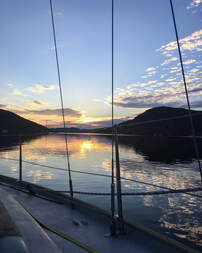 I’ve always been lucky. Even in birth I was lucky. Unfortunately, it took me over 30 years before I appreciated that fact. The journey started a long time ago. It has spanned continents, cultures and the vastness of the Universe itself. It even traversed the entirety of my being. I choose to tell my story, not as an example for anyone to follow. I definitely don’t recommend my course to anyone. Instead I offer it as a tale of triumph over training, and at the urging of many of the friends, family, and tribe I’ve been blessed to meet along my long road home. Thank you for seeing the light in me when I was overwhelmed with the weight of blame, shame, guilt, and fear I’d been convinced was mine. Mine simply for the sin of being born me. I’m sharing my story, not because it’ll make me look good. Especially since I’m sure, in many situations, I behaved in ways of which I’m not particularly proud. I’m sure many things I’ve done will make others judge me harshly. I know I usually do. Well, used to do but don’t anymore because it just doesn’t help anyone. On the other hand, there are those out there who may see their own struggles reflected in my story. Those who may find a kindred spirit and, together, perhaps we can discover hope for a brighter tomorrow. People who know the pain of heartbreak, the fear and darkness of chronic pain/illness, or the struggle to become a grounded, empowered, embodied, vital, grace-filled human being. For all of those people, my tribe, this story is for you. For everything in this world is always in flux. Change is the engine of evolution and an inevitable, inescapable part of nature; Our nature and the human experience. There is no need to fear change. Instead, by embracing it, we can become the architect of our future, instead of a slave to our past. Out of the darkness of fear, blame, and shame, there is a path toward the light. There is a path towards change, the Conscious evolution of yourself, your life and the very world itself. It is not always a comfortable path. Rather there are bound to be speed bumps along the way. However, we know together we can create a masterpiece. So let us shed our fear, our grief and our anger. Let us break free of the cycle of self-destruction to which modern life has accidentally gotten us addicted. Let us open ourselves to a future of our own creation. A world full of love, compassion, balance, harmony, grace, health, integrity and prosperity for ALL creatures. It is the terrifying idea of a different kind of future that led two professionals, in their prime earning years, to leave behind “The Dream”. Discarding modern society’s idea of success and the dream of penthouses, drivers, maids, dream vacations in Bali and Thailand, bucket list adventures, etc. for a different kind of life. A simple life, where connecting to nature is the norm, not the rarity, as it is many for so many living a thoroughly modern life. Since we had both worked, in our respective professions, towards environmental protection in developing economies for 20 or more years, we kept abreast of the latest research from across the globe. Several years ago it became obvious that we were “losing the war”, not to mention species, ecosystems, and global life support systems. We both agreed there was no more time to waste. There was no more we could give others, whom we had each chronically, and quite accidentally, pathologically chosen to put before ourselves. It was time for us to focus on ourselves and live in a way that made more sense to us, on every level: heart, mind, body and soul. This is the story of our experience transitioning from a “modern lifestyle” to a more sustainable, self-sufficient, empowered and embodied one. On this journey we’ve abandoned the ideas of mistakes, fault, failure, etc. Instead, we are explorers, experimenting and observing the results; reflecting, refining and observing some more. We are not suffering, nor living in a rain barrel, as some refer to our tiny house, s/v EOS. Instead, we are finding joy, peace, and fulfillment in remembering ourselves as part and parcel of nature. Learning what she has to teach and in awe of the beauty, grace, and magic that awaits in a life lived in harmony with our Mother. The last time we met here we were talking about starting a quasi-adult life by leaving the United States for work -- that is how I did it anyway. Living apart and outside of the normal world, but on purpose, so news of developments abroad could be relayed home and people could make good decisions at home because of my work.
Yet, while in Europe, watching the chaos that was the initial rumblings of the European Economic Community (EEC) coming into being in the early 1990's -- later to end up the EU -- I fell in love with the idea that 300 million people were consciously deciding to change the world they lived in. At the time, Europe had already knocked the hell out of itself with two world wars in a Century. So, a peaceful way to change the world sounded like something worth trying -- and I was young and optimistic as we all were while East was meeting West in Europe. So, the idea of being able to study what was then called the Sociology of Law -- why people do what they do and how you can predict, if at all, when and how people will change and follow new laws / mapped out realities like an EU or Modern China, etc. Fascinating -- and nobody was shooting at or around you. Ok, let's do that instead. Taking the skills of observation learned in the wild places of the world and sitting in leather chairs in some of the best libraries in the world from Amsterdam to Bangkok, Hong Kong and eventually Beijing, occupied the next 25 years of my life. Trained as an academic -- meaning writing down all observations and trying to apply rules to what kind of changes human beings could / would tolerate -- became my life's work. The thing about being an academic is -- it is hard to get anyone to care about stuff you discover unless you can find a way to show people how it applies in real life. For someone who spent almost 13 years as a student, I can tell you Jonathan Swift's ideas of academics being disconnected from life is more true than I would like to admit. So, instead of attempting to convince my friends I had discovered something useful -- peaceful transition of millions of people from one way of living to another on purpose -- I went to law school, in order to teach lawyers about the international community already in existence that helps those changing societies become something new. And that gave my friends a way to see some benefit to the idea of paying attention to our changing world. Unfortunately, the United States does not really consider international environmental law or human rights law to be a career you can do for a job and still remain living indoors. So, I stayed in Europe and Asia where such things were considered grown up jobs with real salaries. Meaning, I did not turn my back on the US so much as the US came up with many of these ideas, yet did not follow them at home. Thus, my career as an ex-patriot or 'expat' blossomed. What is an expat? Well, there are several million people living all over the world outside of their home country -- flying planes, building power plants, glass factories, ports, a million things we manufacture or operate here there and everywhere in our globalized world. About half way though my 15 years in China, there were 500,000 people like me in China -- about 75,000 from the USA alone. We call it Expatville -- a community of people who leave home for work and never return. ~97% of people who go expat never go back. Once you have seen the larger world, it is hard to put yourself back into the box of any specific country. So, when you hear the stories we tell about the life we live and we seem free and without the 'boxes' that you live in -- it is true that we missed the day they gave out boxes in school. Boxes are of course, local politics, social norms, political correctness, credit card debt, car payments, house payments -- all of it. We live outside of that world -- and we like it just fine thank you very much. Yet, it is not without costs. I got my first television at 45 years old and I was closer to 50 when cable and seamless internet access became normal in Mainland China. So, from 20 years old to 50 years old, I paid attention to work instead of all that America-stuff because I had no access... And that is how I ended up the only non-Chinese person to open a law firm in Mainland China -- and get away with it for 15 years until they made my job illegal. But more on that next time... M 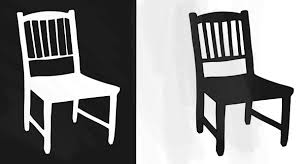 When I was in university I discovered the school of journalism where you could train and prepare to be a war correspondent. And being a jacked-up teenager, the idea of getting paid to go to exotic places where people were shooting at each other sounded like a dream job come true. Way back in the 1980's we had things called darkrooms where film was developed -- we did not have cell phones / the internet / etc -- so when you went off to cover a revolution you were really far out on the edge, out of reach. Yet the way you broke stories was well -- by going -- over there, somewhere and waiting around until a civil war started or whatever. So, the mindset we were advised was most useful was F-8 and be there. F-8 being a middle setting on an SLR lens and be there to mean paying attention to what was going on around you as an observer - not a participant. The habit of observing instead of participating can, I find, lead you to places you never could have imagined. Then as you got better at figuring our what was going on around you and you could observe yet not get squashed by the chaos going on around you. Artfully dodging chaos -- while paying attention to the big picture -- so you could learn what to focus on. One can either accept that chaos exists in the world and work with it -- or get repeatedly bashed over the head by it until the lesson to pay attention is learned and internalized. A habit as easy as crossing the street, once you learn how. Living on a small boat we deal with this everyday. Our opinions are irrelevant, the sea and weather are... Eos.earth artfully dodging chaos is where we chose to put our focus for the last five years. Why? And why should you care? The Western calendar identifies this year as 2023 and my wife and I are in our mid-fifties. We have been able to watch the global population double to over 8 billion of us earthlings now. And we became an urban species a few years ago too. So, the idea of the world we all grew up with stopped reflecting the real world we live in long ago. And that seems to make people crazy and think the world is going to end -- or some such nonsense. Perhaps it is just that we have the internet and we can all see each other now for the first time? Yet, I have made a career and life of academic study of how our societies have, for about 500 years now, grown closer together -- by common agreement in the form of treaties, agreements and understandings. And I believe that if you learn what the world looks like through our eyes -- you would be optimistic too. But, there is a problem. As as attorney, almost all of what I have learned about how the world works was part of being a consigliere and advising the super rich on what was going on in the world as it changed before all our eyes. However, I can share with you my resultant world view -- and if you look at it in just the right way -- like with a negative space drawing, you will probably be able to see what I wanted to show you all along. And I will not have broken any rules on confidentiality. Much of what we have been doing over the last five years is untangling that mess of secrecy so that we could crochet it back into something tangible and useful. And Eos Life Artfully Dodging Chaos is that process... M |
Michael Sylvester
|

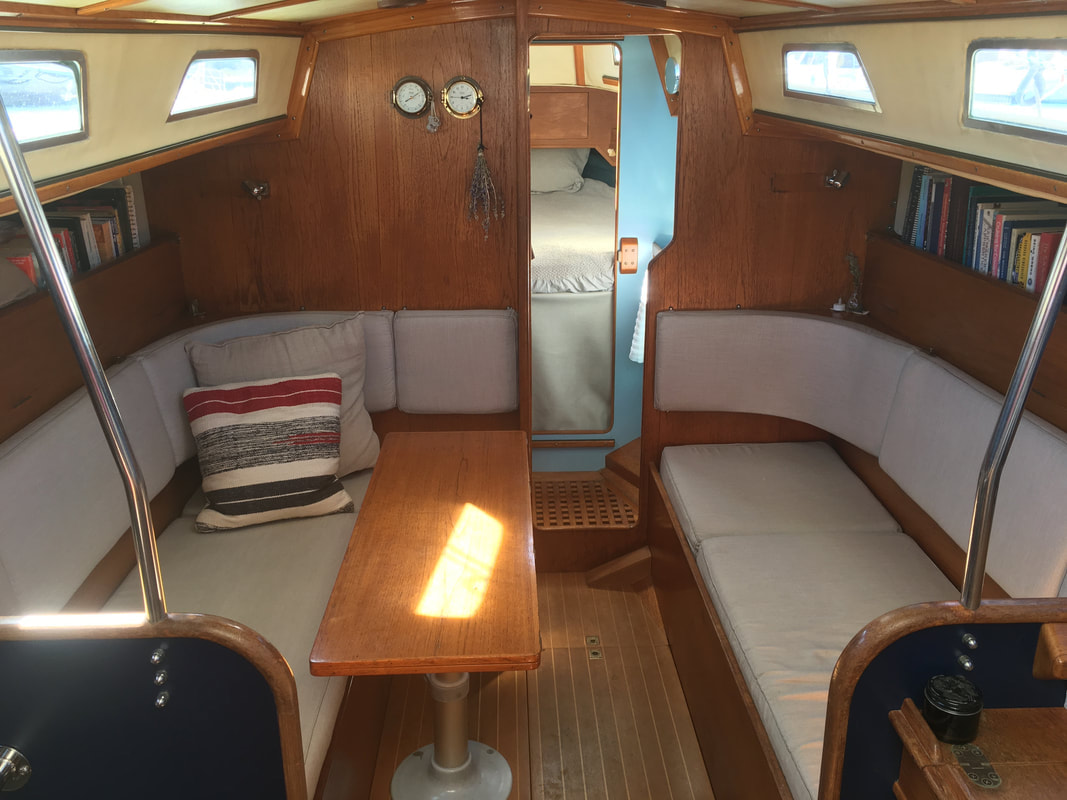
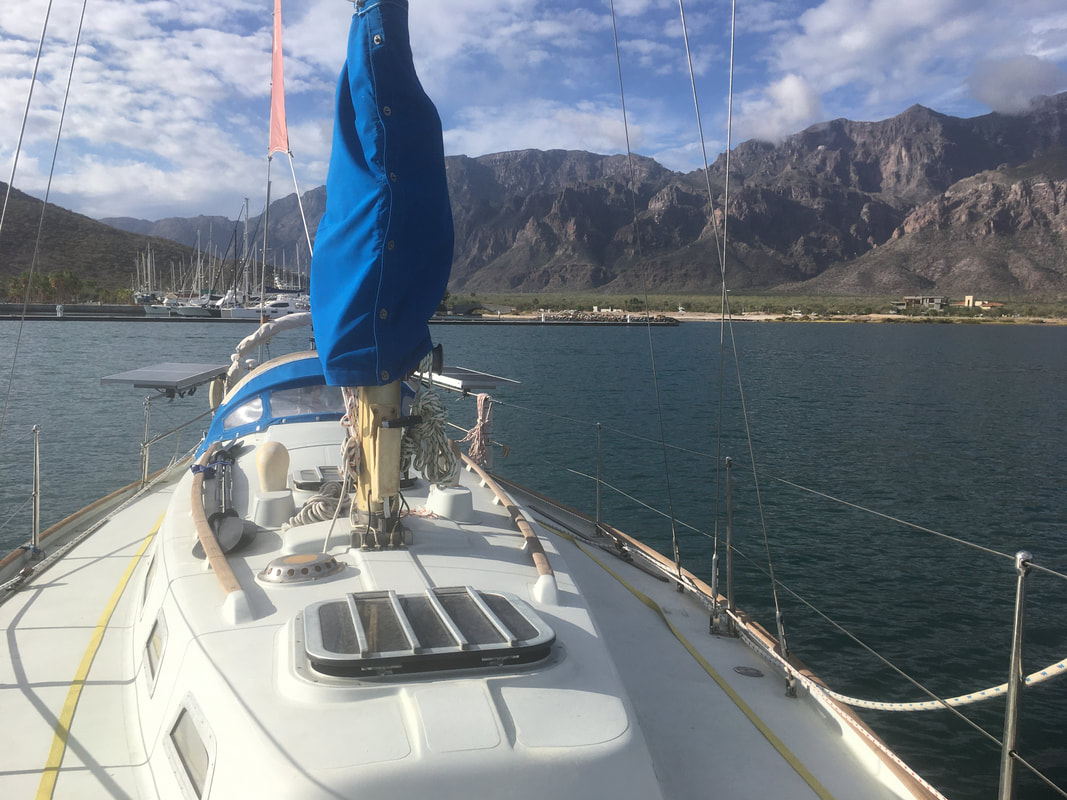
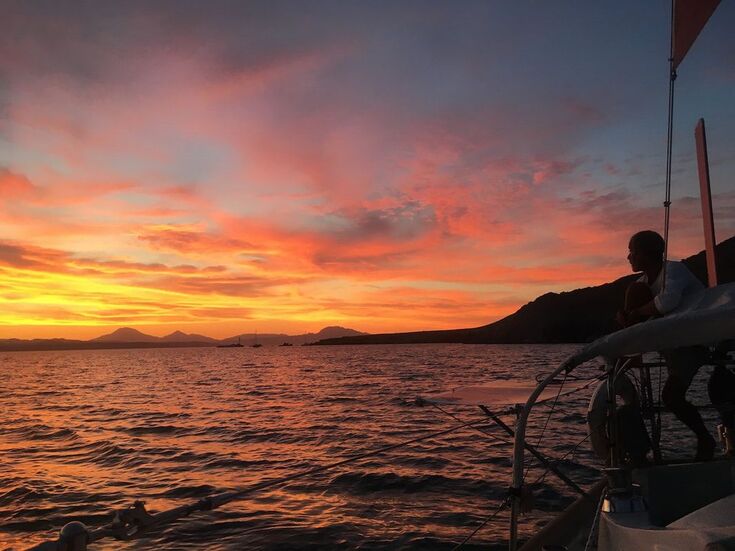
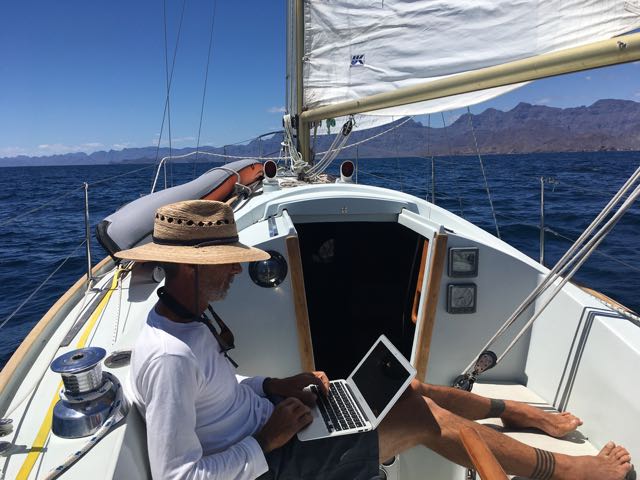
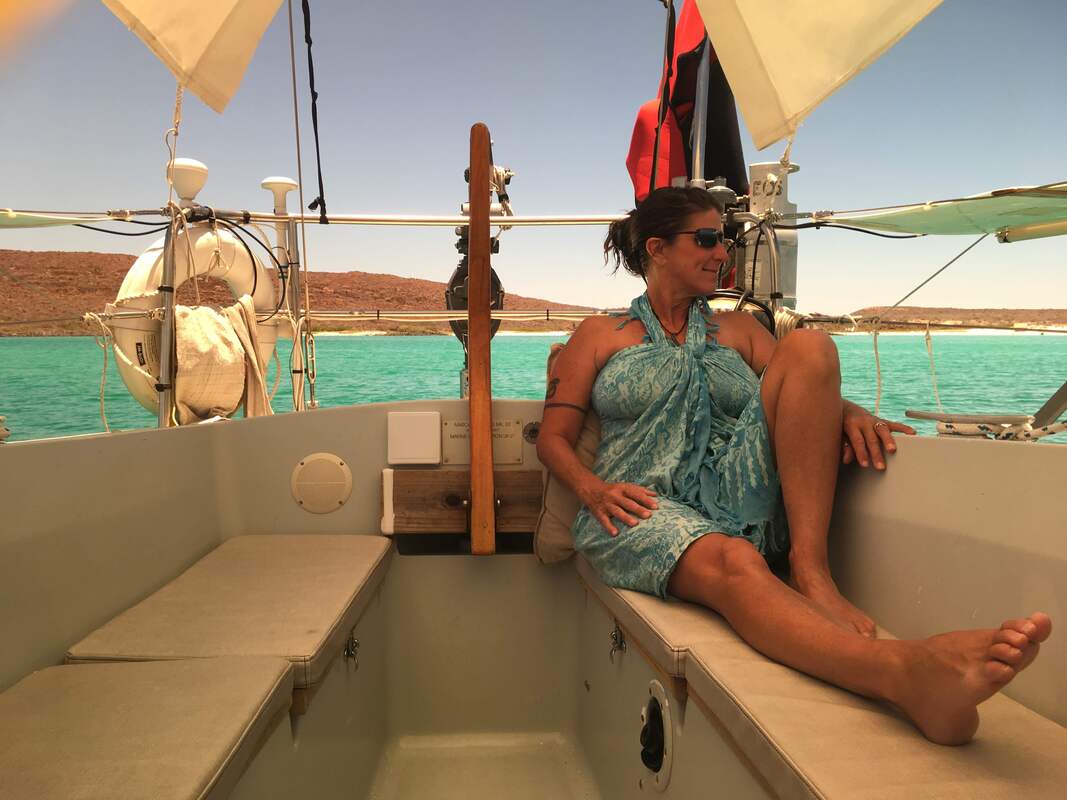
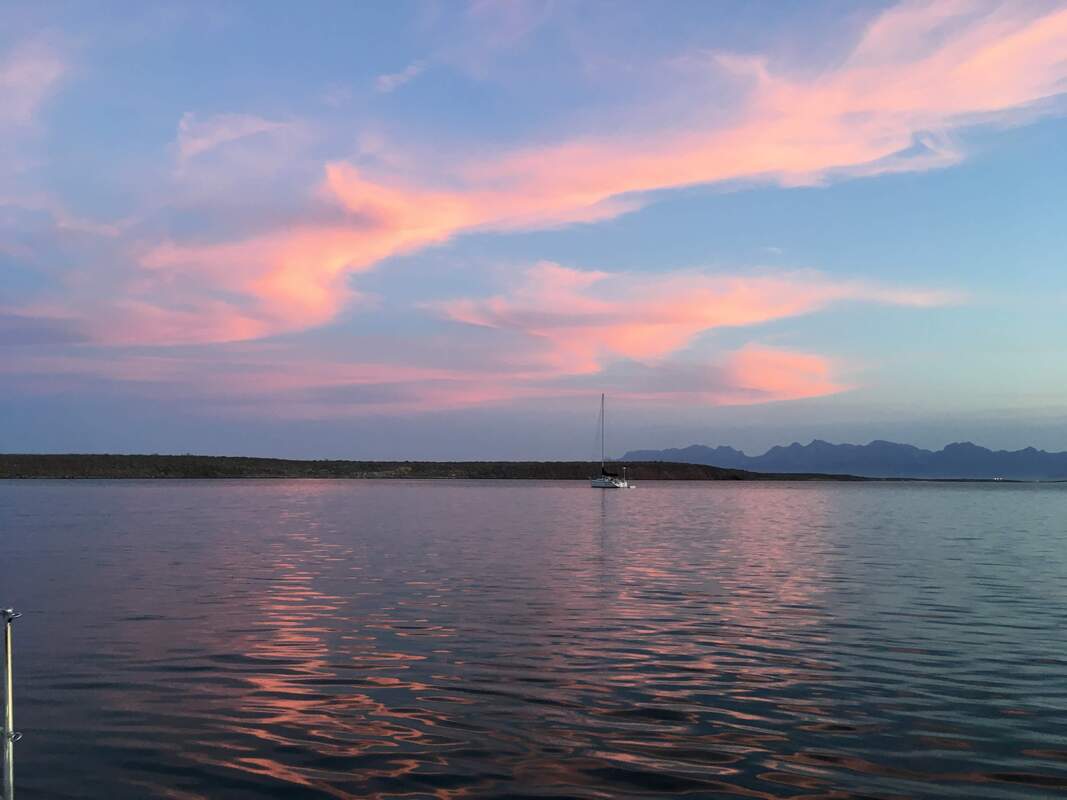
 RSS Feed
RSS Feed